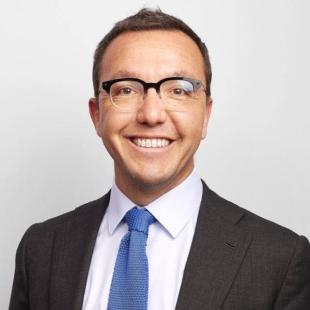
In view of the forthcoming accession of the Monegasque financial regulator, the Commission de Contrôle des Activités Financières (the "CCAF"), to the International Organisation of Securities Commissions, the law n° 1.515 of 23 December 2021 (the "Law") amending law n° 1.338 of 7 September 2007 reinforces Monegasque financial regulation in line with contemporary international requirements. This Law takes the opportunity to stop the practice of reverse solicitation, while reaffirming the monopoly of authorised companies for the marketing of financial services and products on Monegasque territory.
Protection of the monopoly of authorised companies
The new wording of the first paragraph of Article 29 of the Law expressly prohibits the marketing of financial services and products by unauthorised companies[1], thereby clarify the monopoly of companies authorised under the Law. Such a consecration was imperative as, until then, only a mention on the CCAF website dealt with the fate of unauthorised companies for the direct marketing of financial products[2]. Furthermore, it should be noted that the text targets canvassing relating to financial services or products. This is a significant step forward, while local law does not regulate financial products. It is clear that the Monegasque legislator's ambition is to develop the financial sector by gradually introducing this notion into the legislative arsenal. In the same vein, a bill dated 18 October 2021 containing various economic and legal provisions wishes to ratify the notion of "structured financial products" in the Monegasque Commercial Code.
The fate of "reverse solicitation" practically determined
The legislator has taken a rather firm stand on the issue of reverse solicitation (i.e., at the request of the investor). The fact of offering financial services or products on the Monegasque territory, by unauthorised companies, in a derogatory manner and on a purely exceptional basis, without going through authorised intermediaries is now legally prohibited. Until then, cases of reverse solicitation could sometimes be encountered in practice when the solicitation came from the client for a very specific product. Indeed, in order to limit the risks of illegal marketing while easily accessing Monegasque investors, certain unauthorised companies relied on the exception of reverse solicitation, the contours of which remained unclear. Extreme caution was required as the concept was not legally enshrined.
The new Law, which provides that solicited or unsolicited initiatives aimed at offering financial services or products are prohibited, puts an end to this practice. It should be noted that the scope of the ban on such approaches "irrespective of the place or means used" leaves no room for circumvention. While one may be surprised by this radical stance when the bill was still leaving room for doubt and when most of our neighbouring countries recognise reverse solicitation, it should be noted that this concept is under increasing scrutiny by the Autorité des marchés financiers (the "AMF").
In a recent decision of 30 April 2021[3], the Enforcement Committee of the AMF sanctioned the behaviour of a financial investment adviser who approached his clients to illegally market shares in a German limited partnership while attempting to give the appearance of relying on the reverse solicitation exception (the letters of request for information and subscription agreements were in fact only intended to artificially maintain the belief that the requests were coming from the clients).
It should be noted that the Monegasque legislator chose not to recognise the reverse solicitation exception as a basis for a distribution strategy, probably to protect the Monegasque market, risking dissatisfying certain clients.
Unauthorised companies will therefore have to go through financial institutions approved by the CCAF in order to be able to offer their financial products in Monaco. There is no doubt that the relationships already established between certain non-accredited companies and Monegasque investors will be considerably hampered by the new Law. Unauthorised companies targeting the Monegasque territory should be encouraged to find an authorised intermediary and to conclude distribution agreements.
The Monegasque financial actors are now all subject to the same restrictions
Before the new Law, Monegasque credit institutions benefited from a derogatory regime (in other words, freedom) with regard to the modalities of financial canvassing of their customers for all actions conducted on the Monegasque territory. The new provisions break with this regime by subjecting Monegasque credit institutions to Article 29 of the Law. The supervision of the financial regulator will henceforth also extend to banks which are now required to communicate in advance the financial documentation intended for their clients and the public to the CCAF. All companies authorised to market financial products will therefore have to carry out their forward-looking activities exclusively on their business premises, except in the case of prior solicitation of their clients.
Extension of sanctions
With regard to criminal sanctions in case of violation of the provisions of Article 29, the Law now provides for an increase in the maximum criminal sanction incurred, which may be raised to three times of figure 4°) of Article 26 of the Monegasque Criminal Code. The field of application rationae personae has been widened since the criminal sanctions are now intended to apply to "any person who, in breach of the provisions of Article 29 of the Law, takes steps or causes steps to be taken, or causes prohibited advertising […]" (whereas these sanctions were previously incurred by the directors of approved companies solely).
The Monegasque legislator has thus carefully blocked access for offshore companies to the Principality's clients by expressly prohibiting passive marketing and by preventing any risk of circumvention.
________________________________________
[1] "Companies not authorised under this law are prohibited from taking any steps, whether solicited or not, with a view to offering financial services or products, irrespective of the place or means used".
[2] http://www.ccaf.mc/en/the-ccaf-in-one-click/marketing-of-financial-products-in-the-principality ("Direct marketing of financial products by non authorised companies in the Principality of Monaco is fully prohibited.")
[3] https://www.amf-france.org/sites/default/files/private/2021-05/decision.pdf.





